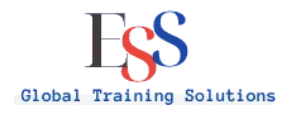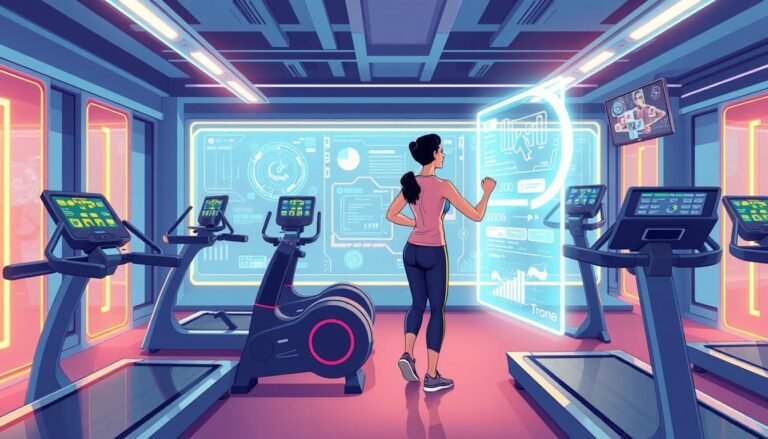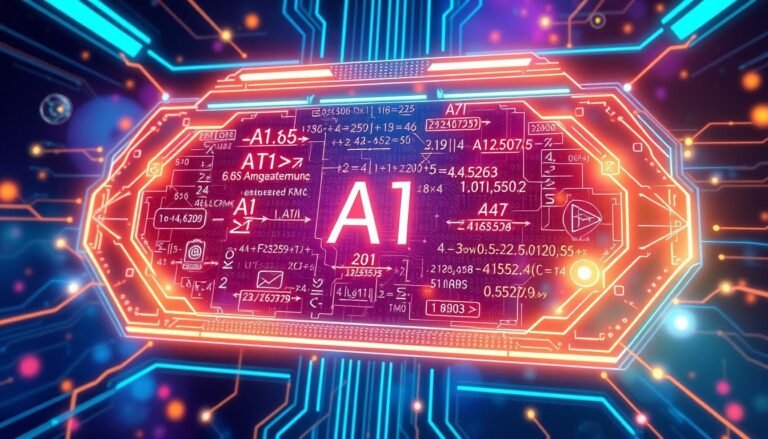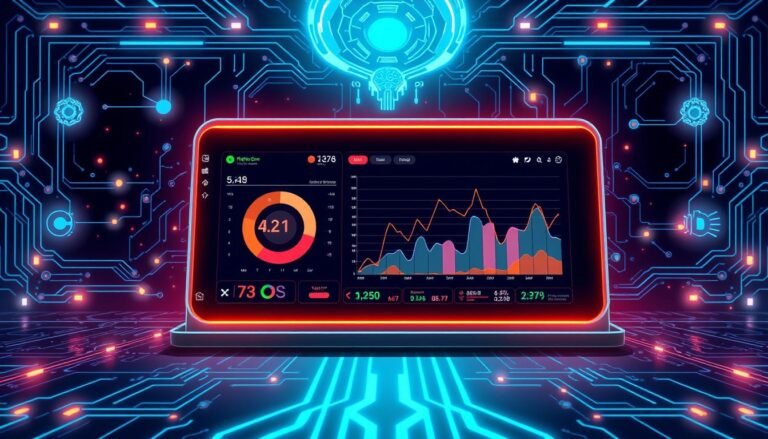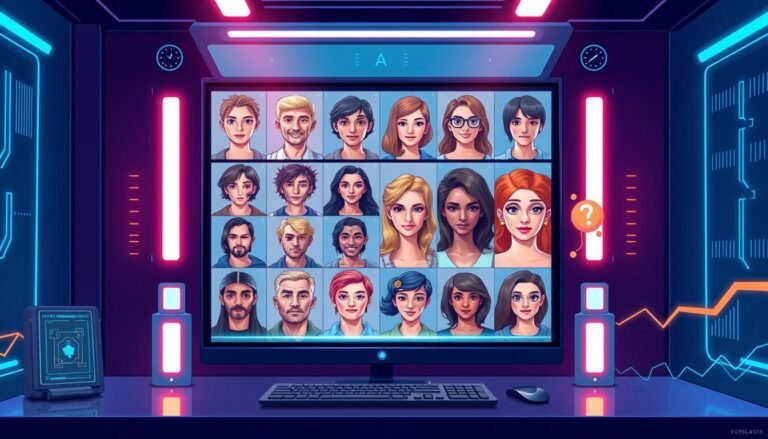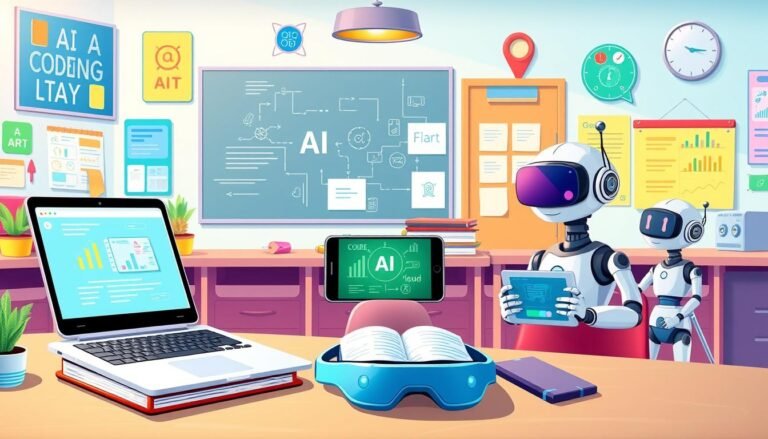Best books on AI
Are we on the brink of an AI revolution that will reshape our world, or are we blindly stumbling into a technological dystopia? As artificial intelligence rapidly evolves, staying informed is crucial. The best books on AI offer a window into this transformative technology, helping us navigate its potential and pitfalls.
McKinsey research suggests generative AI could add a staggering $2.6-$4.4 trillion to the global economy annually. With such high stakes, it’s no wonder the field of AI literature is expanding at breakneck speed. Our curated list of top AI book recommendations spans from introductory texts to deep dives into specific AI applications, catering to curious beginners and seasoned tech enthusiasts alike.
These artificial intelligence books come highly rated, with many boasting impressive Goodreads scores. For instance, “Life 3.0: Being Human in the Age of Artificial Intelligence” by Max Tegmark holds a stellar 4.42-star rating, while Stuart Russell’s “Human Compatible: Artificial Intelligence and the Problem of Control” follows closely at 4.40 stars.
Whether you’re looking to boost your career prospects or simply understand the AI-driven world around you, these books offer invaluable insights. Ready to explore the minds shaping our AI future?
Key Takeaways
- AI books cover diverse topics from basic concepts to ethical dilemmas
- Top-rated AI books on Goodreads score between 4.0 and 4.42 stars
- Recommended books include both technical guides and accessible introductions
- AI literature explores potential societal impacts and human-AI collaboration
- Reading about AI can significantly enhance career prospects and emotional intelligence
Introduction to AI Literature
The rise of artificial intelligence has led to a surge in must-read AI literature. AI is changing industries and daily life. It’s important for professionals and enthusiasts to stay informed through an essential AI reading list.
The importance of staying informed in the AI field
AI is evolving fast, and we need to keep learning. Books dive deep into AI concepts, applications, and future possibilities. They help us understand AI better, separating truth from myth.
How AI books can enhance understanding and skills
Quality AI literature gives us insights from experts. For example, “The Alignment Problem” by Brian Christian, published in 2020, explores AI’s development. It looks at AI through the eyes of computer scientists, cognitive psychologists, and philosophers.
“There are some terrific books about AI available once you weed out the grifters.” – Brian Christian
Overview of the impact of AI on various industries
AI is changing many sectors, from healthcare to finance. It’s important for professionals to understand AI’s potential and challenges. Here’s a comparison of highly-rated AI books on Goodreads:
| Book Title | Author(s) | Goodreads Rating |
|---|---|---|
| The Alignment Problem | Brian Christian | 4.39 |
| Artificial Intelligence: A Guide for Thinking Humans | Melanie Mitchell | 4.37 |
| Artificial Intelligence: A Modern Approach | Stuart Russell and Peter Norvig | 4.19 |
| Superintelligence: Paths, Dangers, Strategies | Nick Bostrom | 3.86 |
These books offer different views on AI’s current state and future. They are great for any AI enthusiast’s reading list.
Best Books on AI: A Curated List
AI book bestsellers open the door to the fast-changing world of artificial intelligence. Our list includes top picks from experts, researchers, and key AI authors. These books span from basic ideas to advanced uses.
“Machine Learning for Dummies” by John Paul Mueller and Luca Massaron is great for newbies. It makes AI easy to grasp. For a deep dive, “Artificial Intelligence – A Modern Approach” by Stuart Russell and Peter Norvig is a must-read. It’s known as the AI bible.
Max Tegmark’s “Life 3.0: Being Human in the Age of Artificial Intelligence” looks at AI’s future impact. Tariq Rashid’s “Make Your Own Neural Network” teaches you to build neural networks with Python.
“Applied Artificial Intelligence: A Handbook for Business Leaders” by Mariya Yao, Adelyn Zhou, and Marlene Jia is perfect for business folks. It shows how to use AI in the workplace.
For generative AI, check out David Foster’s “Generative Deep Learning” and Bernard Marr’s “Generative AI in Practice”. They dive into this new field, with practical examples.
Our list keeps you up-to-date on AI, from basics to new trends like generative AI. These top AI books are essential for anyone wanting to grasp AI’s power.
AI Needs You: How We Can Change AI’s Future and Save Our Own
“AI Needs You” by Verity Harding is a standout in AI literature. It offers a fresh look at how AI will shape our future.
Author: Verity Harding
Harding is known for her blend of politics, policy, and tech expertise. Her book has received high praise:
- Named “Biggest Book of the Year” by The Economist
- Recognized as a “Must-Read Non-Fiction Book of the Year So Far” by Tatler Front & Female
- Described as the “most readable book about tech” by many readers
Key Takeaways and Insights
Harding’s book gives a historical context to tech milestones. She stresses the need for safe and ethical AI use. She argues that AI can be made to serve the public good, not just lead to disaster.
“This extraordinary chapter of human history doesn’t have to end in catastrophe…For now, at least, there’s still power in being human.” – The Guardian
Why It’s a Must-Read for AI Enthusiasts
This book is crucial for those interested in AI’s societal impact. It delves into how AI algorithms shape our online lives, jobs, and healthcare. Harding also explores AI’s role in agriculture, climate science, and creative fields, offering a broad view of AI’s applications.
| Area | AI Impact |
|---|---|
| Social Media | Curates feeds, recommends products |
| Job Market | Influences hiring decisions, may perpetuate biases |
| Healthcare | Analyzes medical images, potential to widen health disparities |
| Agriculture | Optimizes crop yields, reduces water usage |
| Climate Science | Analyzes data for weather prediction and climate trends |
Harding’s book encourages readers to help shape AI’s future. It’s a valuable resource for those interested in AI’s ethical development.
The Singularity Is Nearer: When We Merge with AI
Ray Kurzweil’s “The Singularity Is Nearer” is a key book on AI. It talks about a future where humans and AI become one. This idea is called the technological singularity.
Kurzweil works at Google and has won many awards. He still thinks that by 2029, we’ll have Artificial General Intelligence (AGI). He says The Singularity will happen in 2045.
“The Singularity will usher in a new era of near immortality through nanotechnology and AI advancements.”
The book looks at how fast technology is changing. It shows how these changes will make our society much better. Kurzweil believes our brains will grow a million times stronger.
| Prediction | Year |
|---|---|
| AGI Achievement | 2029 |
| The Singularity | 2045 |
Kurzweil knows AI still has a lot to learn. It can’t remember things well or understand people yet. But he’s hopeful we’ll get past these problems. His ideas have won him many fans in tech.
Co-intelligence: Living and Working with AI
Ethan Mollick’s “Co-intelligence: Living and Working with AI” is a practical guide on working with AI. It explores how AI can make our daily lives and work better.
Author: Ethan Mollick
Mollick is a leading voice in AI, known for his insightful commentary. His work has been praised by Angela Duckworth and Reid Hoffman.
Exploring Human-AI Collaboration
The book looks at AI’s history, from the 1950s to the ChatGPT era. Mollick suggests trying out AI to see what it can do. He recommends dividing tasks into “just me” or “me and AI” to work better together.
Practical Applications in Daily Life and Work
Mollick shows how AI can be a tutor and coach in various areas. He outlines four possible futures for AI, from “As Good as It Gets” to “The Machine God.” The Wall Street Journal calls it a guide for living and working with AI.
| Format | Price | Details |
|---|---|---|
| Hardcover | $30.00 | 256 pages |
| Ebook | $15.99 | Digital version |
| Audiobook | $17.50 | 279 minutes |
This detailed review of Mollick’s book shows his balanced view on AI. It’s a great resource for those looking to understand the AI future.
God, Human, Animal, Machine: Technology, Metaphor, and the Search for Meaning
Meghan O’Gieblyn’s book “God, Human, Animal, Machine” looks at how technology changes our view of humanity and our search for meaning. As a leading AI author, O’Gieblyn shows how digital growth changes our understanding of life and faith.
The book links digital processes with Christian teachings, inspired by Ray Kurzweil’s “The Age of Spiritual Machines.” O’Gieblyn talks about “The Singularity,” where our minds might live on in digital form.
O’Gieblyn questions our trust in algorithms for wisdom and knowledge. She argues against Chris Anderson’s idea that AI should handle complex tasks. This debate highlights the importance of human thought versus machine smarts.
“In the year 2001 alone, the amount of information generated doubled that of all information produced in human history. In 2002 it doubled again, and this trend has continued every year since.”
The book shows how tech has turned philosophical questions into engineering challenges. It mentions Elon Musk’s Neuralink, aiming to link human brains to computers for mind transfer.
O’Gieblyn’s work on science and religion in the digital age is thought-provoking. It takes readers on a journey through the changing world of human existence and our quest for meaning in an AI world.
Ideas That Created the Future: Classic Papers of Computer Science
“Ideas That Created the Future: Classic Papers of Computer Science” is a key read for AI fans. Edited by Harry R. Lewis and published by MIT Press in 2021, it delves into AI’s history.
A Comprehensive Collection
This book gathers 46 top papers in computer science. It costs $60 for the paperback and $42 for Kindle. It’s great for AI lovers and computer science students.
Historical Context and Foundational Concepts
Lewis picked papers up to 1980, focusing on their impact and clarity. The book covers logic, computation, and modeling. Each paper has an introduction by Lewis, offering insights into the authors and their work’s importance.
| Feature | Details |
|---|---|
| Number of Papers | 46 |
| Time Period Covered | Up to 1980 |
| Topics Included | Logic, Computation, Computer Modeling |
| Additional Content | Editor’s Introductions for Each Paper |
By reading these classic papers, you can see how computer science evolved. You’ll understand the key ideas that still influence AI today. This book is a must-read for anyone interested in AI’s history and development.
The Coming Wave: Technology, Power, and the Twenty-First Century’s Greatest Dilemma
Mustafa Suleyman, CEO of Microsoft AI and co-founder of DeepMind, has teamed up with writer Michael Bhaskar. Together, they’ve created a groundbreaking AI publication. Their book, “The Coming Wave,” explores the challenges of controlling powerful AI technology.
This book is unique because it balances scientific progress with warnings about dangers. Suleyman and Bhaskar delve into the “containment problem.” They discuss how to keep advanced AI systems under control.
The book is split into four sections, focusing on AI and synthetic biology. It shows the challenges of controlling technology due to its fast growth and wide use. Suleyman and Bhaskar suggest nine ways to manage technology, including safety measures and audits.
“The Coming Wave” is both a stark warning about unchecked technological progress and a hopeful guide to navigating our AI-driven future.
Experts and leaders in the field have praised this book for its clear and authoritative voice. It has won the Inc. Non-Obvious Book Award. It’s seen as a must-read for understanding the impact of new technologies.
| Key Features | Recognition |
|---|---|
| Balanced approach to AI progress | Winner of Inc. Non-Obvious Book Award |
| Nine strategies for tech containment | Finalist for Porchlight Business Book Award |
| Focus on AI and synthetic biology | Best Book by CNN, Economist, Bloomberg |
| Insights on job displacement | Praised by Bill Gates, Yuval Noah Harari |
AI 2041: Ten Visions for Our Future
“AI 2041: Ten Visions for Our Future” is a top pick in AI book recommendations. It’s a mix of science fiction and predictions about AI’s future. It gives us a sneak peek into what our AI-driven world might look like.
Authors: Kai-Fu Lee and Chen Qiufan
Kai-Fu Lee, who used to lead Google China, teamed up with science fiction writer Chen Qiufan. Together, they bring tech know-how and creative storytelling. They explore how AI will change our society.
Blending Science Fiction with Technical Predictions
The book tells ten stories set in 2041. Each story shows how AI will change our lives, from work to personal relationships. It paints a picture of a world where advanced AI systems and humans live together.
Exploring Potential AI Scenarios in 2041
Lee and Qiufan look at both good and bad AI futures. They discuss how AI could change our society, how we interact, and more. Their stories make us think about what an AI world could mean for us.
| Format | Price | Pages | ISBN |
|---|---|---|---|
| Paperback | $20.00 | 496 | 9780593238318 |
| Hardcover | $32.00 | 480 | 9780593238295 |
| Ebook | $14.99 | 496 | 9780593238301 |
| Audiobook | $25.00 | 1085 minutes | 9780593451335 |
Released in 2021, this book is essential for anyone curious about AI’s future. It shows how AI could shape our lives.
The Alignment Problem by Brian Christian
Brian Christian’s “The Alignment Problem” is a key read for those interested in AI. Published in 2020, it dives deep into AI, covering its basics and the obstacles it meets.
Christian’s work has received high praise in the tech world. It topped The New York Times’ list of “The Five Best Books About Artificial Intelligence.” It also won the Excellence in Science Communication Award from the National Academies of Sciences, Engineering, and Medicine.
The book explores the challenge of making AI systems fair. It shows how, despite being designed to be neutral, AI can still reflect biases in gender and race. This happens because of bad data.
“A jaw-dropping exploration of everything that goes wrong when we build AI systems and the movement to fix them.”
Christian makes complex ideas easy to understand. He combines insights from computer scientists, psychologists, and philosophers. This gives a full picture of AI’s growth and its effects on society.
| Key Aspects | Details |
|---|---|
| Publication Date | October 6, 2020 |
| Pages | 496 |
| Publisher | W. W. Norton & Company |
| Notable Recognition | Recommended by Satya Nadella, CEO of Microsoft |
| Critical Acclaim | “Meticulously researched and superbly written” – Nature |
If you’re into the ethics of AI and its future, “The Alignment Problem” is a must-read. It sheds light on the hurdles of making AI align with human values. It’s a key piece in today’s AI literature.
Life 3.0: Being Human in the Age of Artificial Intelligence
Max Tegmark’s “Life 3.0: Being Human in the Age of Artificial Intelligence” dives deep into AI’s future impact. It has caught the eye of tech giants and world leaders, standing out in AI book reviews.
Author: Max Tegmark
Tegmark, a physics professor at MIT and co-founder of the Future of Life Institute, shares his knowledge. His writing is clear, making AI complex ideas easy to grasp. The book hit the New York Times Best Seller List and got thumbs up from Barack Obama and Elon Musk.
Examining the long-term impact of AI on society
Life 3.0 asks big questions about AI’s role in our lives and our future. Tegmark looks at what might happen if machines become smarter than us. His story has sparked important talks about our tech future.
Balancing AI innovation and safety concerns
Some say Tegmark’s ideas are too extreme, but many praise his balanced view. He stresses the need for AI to help humanity, not harm it. This message has struck a chord with readers, making Life 3.0 a key book for understanding AI’s role in our future.
Source Links
- AI Book Recs: Add These to Your Reading List
- The Ultimate Reading List of the 10 Best Books on AI
- Books on Artificial Intelligence to Read in 2024
- Everybody Is Talking About A.I. What the Heck Is It, Anyway?
- 5 Most Recommended Books on AI to Master the Fundamentals
- Best Artificial Intelligence Books to Read in 2024 | Simplilearn
- 10 Books for Every Gen AI Enthusiast in 2024
- AI Needs You
- AI Needs You: How We Can Change AI’s Future and Save Ou…
- Ray Kurzweil’s New Book: The Singularity is Nearer (when we merge with AI)
- The Singularity Is Nearer: When We Merge with AI
- Co-Intelligence by Ethan Mollick: 9780593716717 | PenguinRandomHouse.com: Books
- Co-Intelligence: Living and Working with AI
- AI and Family History: Review of “Co-Intelligence: Living and Working With AI”
- All the Eternal Questions: On Meghan O’Gieblyn’s “God, Human, Animal, Machine” | Los Angeles Review of Books
- God, Human, Animal, Machine: Technology, Metaphor, and the Search for Meaning by Meghan O’Gieblyn
- Artificial Intelligence
- The Coming Wave Book
- The Coming Wave: Technology, Power, and the Twenty-firs…
- The Coming Wave: Technology, Power, and the Twenty-first Century’s Greatest Dilemma
- AI 2041 by Kai-Fu Lee, Chen Qiufan: 9780593238318 | PenguinRandomHouse.com: Books
- AI 2041: Ten Visions for Our Future
- The Alignment Problem | Brian Christian
- The Alignment Problem
- The Alignment Problem: Machine Learning and Human Value…
- Life 3.0
- Life 3.0: Being Human in the Age of Artificial Intelligence
- Life 3.0: Being Human in the Age of Artificial Intellig…
